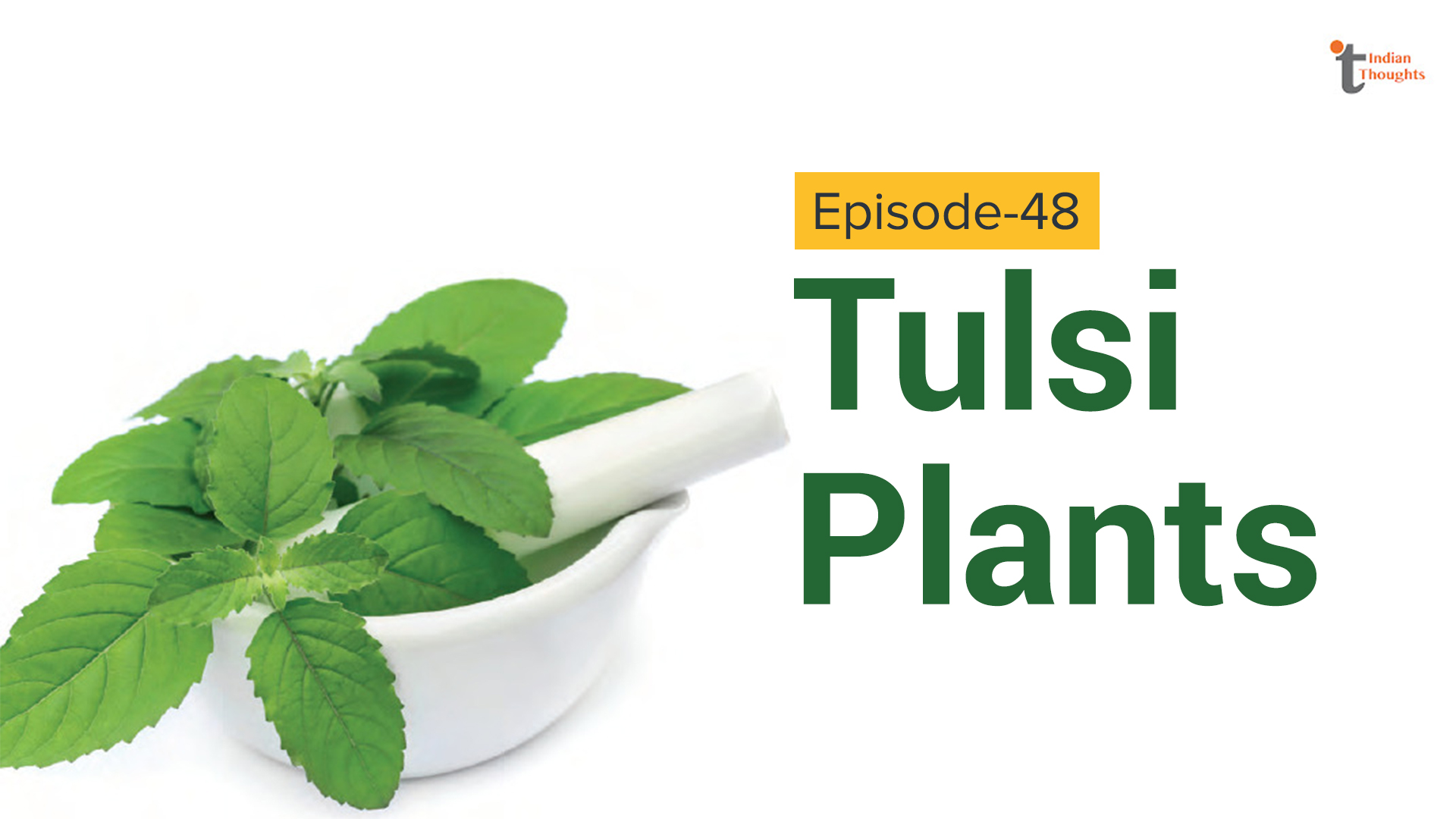Many traditions and practises touching ordinary natural life on country sides which according to me were odd, have become quite sensible, as time rolled on. Still, I’m of the opinion that every practice, social or religious, should be restructured to fit in the changing times. The Sun God flying on his seven-horse drawn chariot may be referring to those seven basic colours in the light spectrum. Hanging on to the same good old context is certainly deteriorating to all categories of thought schools.
In India, there were long lists of strict rules regarding all household chores. The rituals connected with the Tulsi plant itself are quite long. The word meaning of Tulsi is said to be ‘never equal to anything’. Tulsi is the favourite plant of Lord Vishnu and plucking a Tulsi shoot also is done only facing eastwards and also after a full body wash. Dry Tulsi ears are to be plucked and thrown down under the plant itself. Plucking its leaves on certain days like Tuesday and Friday, along with Sankranthi and Dwadasi are forbidden. In Hindu houses Tulsi is worshipped. Traditionally, it is grown in the front yard of the house, on a special altar like permanent square stand – size, location and decoration, decided according to Vastu rules. Tulsi is not plucked by leaves but by bud only. Single woman wears a Tulsi bud behind her right ear and married women on her left ear.
Plucking Tulsi during night hours also is forbidden. The surroundings of any Tulsi plant are to be kept clean and clutter free. Lighting oil lamps at evenings is considered a blissful
108 Shining Wings I
experience. When offering water to the Tulsi plant, the water kalash is to be held with two hands. Chanting Tulsi shloka:
Praseeda thulasi devi
Praseeda hari – vallabhe
Ksheeroda – madanobudhe
Thulasi thwaam namaamyaham and circumambulating the Tulsi plant is good but recommended only during certain zodiac signs, which varies from individual to individual. Generally, a Tulsi-less house is considered holding a bad standing. Scientific experiments have invariably proved that all these practice rules have a logical basis, which decides our character, attitude and overall health.
Tulsi is said to be good for head lice. To avoid these bugs, Tulsi leaves are spread on the bed and worn on hair. There are around 25 variants of Tulsi, all distinct in the overall purpose it serves.
As villages got transformed into cities and space became congested, Tulsi also is forgotten. Still, people continue to be healthy and happy, perhaps better than they would have been in Tulsi centred village houses. That could be true, but joy and peace are different and also growing is not evolving properly.



















